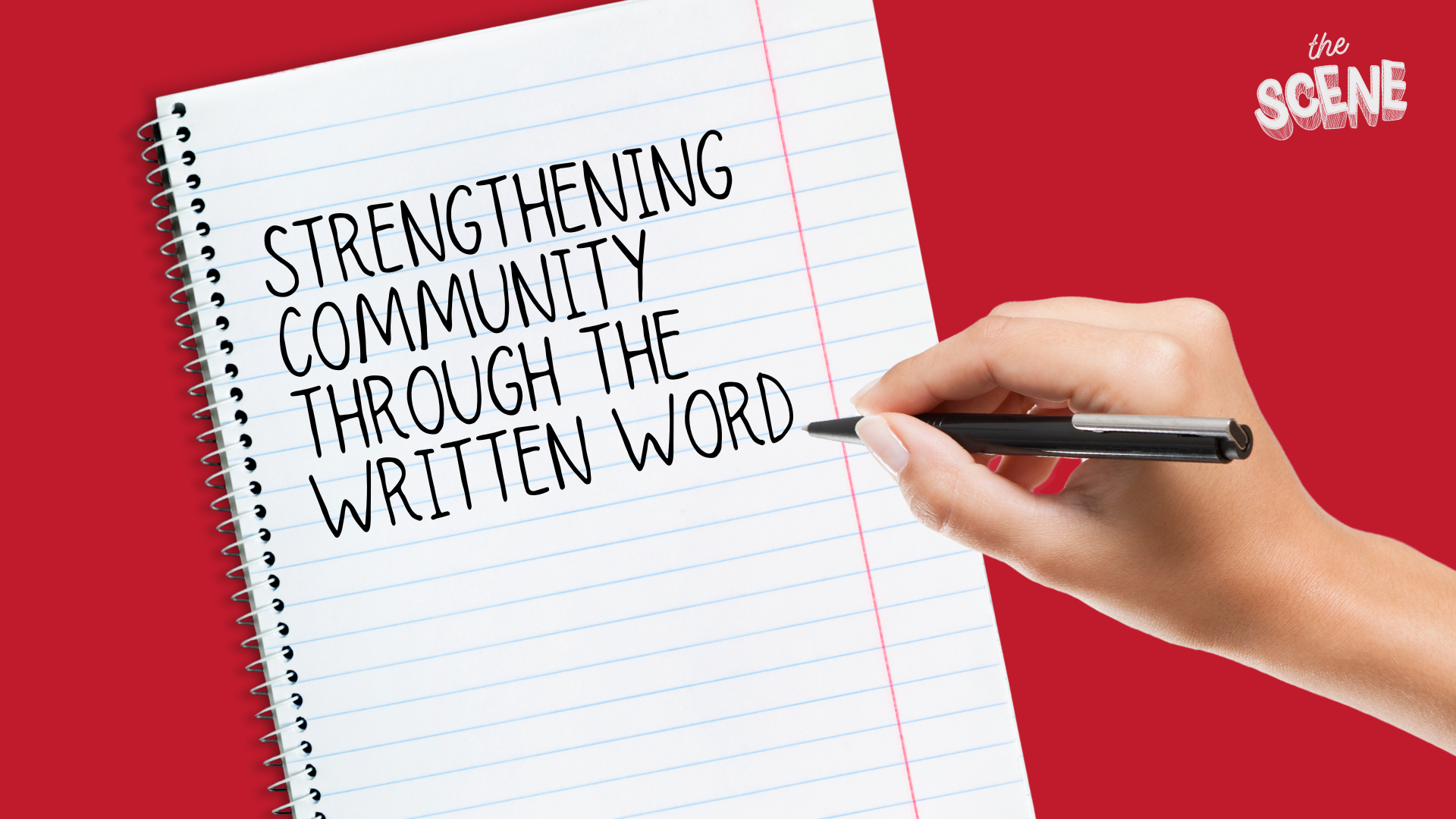By Zach Dulli, The Scene
I’ve always believed in the simple magic of putting pen to paper. When I was a high school student, I would write letters to original cast members of whatever show our theatre department was about to perform. I remember the thrill of sending those envelopes to Broadway legends, the anticipation that followed, and the delight of receiving heartfelt responses in return. We’d gather on opening night to read these letters—some funny, some deeply moving, all generous with their time and wisdom. And while I no longer write these letters, I’ve found that the written letter has grown even more powerful today than it was nearly three decades ago, precisely because it feels so special and deliberate in our fast-paced, digital world. So, as the calendar year winds down and we all catch our breath from the organized chaos of rehearsals, performances, and curtain calls, it’s a perfect time to pause and celebrate the larger community that helps make it all possible.
In the arts—particularly in educational theatre—no one stands alone. Behind every successful production are individuals who light the path: dedicated administrators who champion arts funding, local theatre professionals who generously share their expertise, and supportive parents who tirelessly volunteer their time. A wonderful way to mark the end of the year and the holiday season is to encourage your students to craft personal, handwritten letters of thanks to the many supporters who keep your theatre department flourishing.
Unlike the quick click of a digital “thank you” email or text, a handwritten letter requires effort, care, and attention. Each pen stroke expresses gratitude that cannot be auto-corrected, copied, or generated. This tactile, personal touch speaks volumes in our technology-saturated world, reminding recipients that they are valued as individuals, not just names on a contact list.
Now, before you send me messages about your students’ bad handwriting or their inability to write in cursive, let me stop you right there. To write an effective end-of-year thank-you note, it doesn’t matter if the script isn’t perfectly penned or if they print rather than loop their letters in elegant curls. What matters is the effort they put into the letter, the thought they bring to their words, and the warm feeling it will give the person who receives it. And let’s be clear: I’m not suggesting a generic holiday card that says “Happy Holidays” next to a hastily scrawled name, like the ones you might get from your mailman or dentist. We’re talking about something more meaningful—a real, true, genuine expression of gratitude.
Why Handwritten Letters Matter
In an era defined by swipes, taps, and emoticons, the unique character of a handwritten letter stands out. It says, “I made time for you. I sat down, put pen to paper, and carefully chose the words that best capture my gratitude.” It is a physical manifestation of esteem and appreciation that can be held, re-read, and cherished. Whether it’s a simple thank-you note to the vice-principal who fought to keep the drama budget intact, a heartfelt note to the local costume designer who held special workshops for your students, or an endearing letter to a parent who spent late nights painting sets—these letters have the power to forge stronger bonds between your theatre and the larger extended community.
Building Skills Beyond the Stage
As theatre educators, you know that the lessons learned in your classroom extend far beyond the stage. Crafting thoughtful letters teaches students to articulate their appreciation with sincerity and clarity. They learn how to connect with others on a personal level, a skill that will serve them well both on and off the stage. These letters are also a prime opportunity to discuss why the arts thrive on mutual respect and interpersonal support—concepts that, if embraced now, will guide students in all their future endeavors.
Reinforcing Community Ties
A single note of thanks can also remind supporters of why they invested in your program in the first place. Administrators who see the tangible impact of their decisions may be more inclined to maintain or increase arts funding. Local theatre professionals who feel acknowledged might return next year to continue to share their talents. Parents who read heartfelt words of gratitude will likely be ready to give even more. In essence, these letters become the connective tissue that holds your theatre family together, reinforcing the sense of community at the heart of every great production.
How to Get Started
- Set the Scene: Dedicate a class period, club meeting, or rehearsal break to writing letters. Put away the cell phones and ask students to reflect on the past year’s highlights—from standout performances to small acts of kindness backstage.
- Offer Guidance: Provide a basic outline: a respectful greeting, a personal anecdote or memory, an expression of gratitude, and a heartfelt closing. Remind students that authenticity is more important than perfect phrasing.
- Honor Everyone’s Role: Encourage them to write to those who often go unnoticed: the custodians, the volunteer ushers, or the parent who always had snacks ready after rehearsal. In doing so, students learn to see the full spectrum of people who make theatre possible.
- Distribute the Workload: This isn’t a project for you to undertake alone. By involving students, you share the responsibility and ensure that each individual contributor receives a unique, heartfelt note. This communal effort lightens the load and deepens the impact.
A Tradition Worth Keeping
My own experiences taught me that the right words at the right time can foster connections that last a lifetime. By making these end-of-year letters a tradition, you weave gratitude and recognition into the very soul of your theatre program. More than just a gesture, it’s an annual reminder that no one achieves greatness alone.
In our digital age, a handwritten letter stands out as a rare and wonderful gift—a tangible piece of appreciation that can be held, reread, and cherished. Through these letters, students learn that theatre isn’t merely about dazzling costumes, soaring voices, or clever scripts. It’s about people, relationships, and the shared journey toward something beautiful. Encouraging them to write these notes helps them see that community and collaboration are not just nice words to say—they are the heart and soul of the theatre, guiding us all to create and celebrate together.









